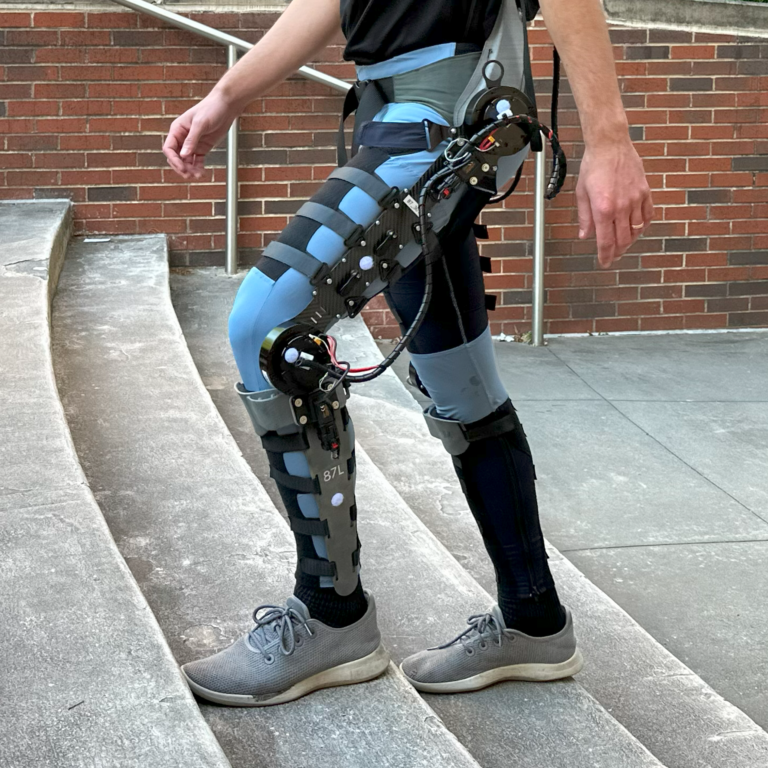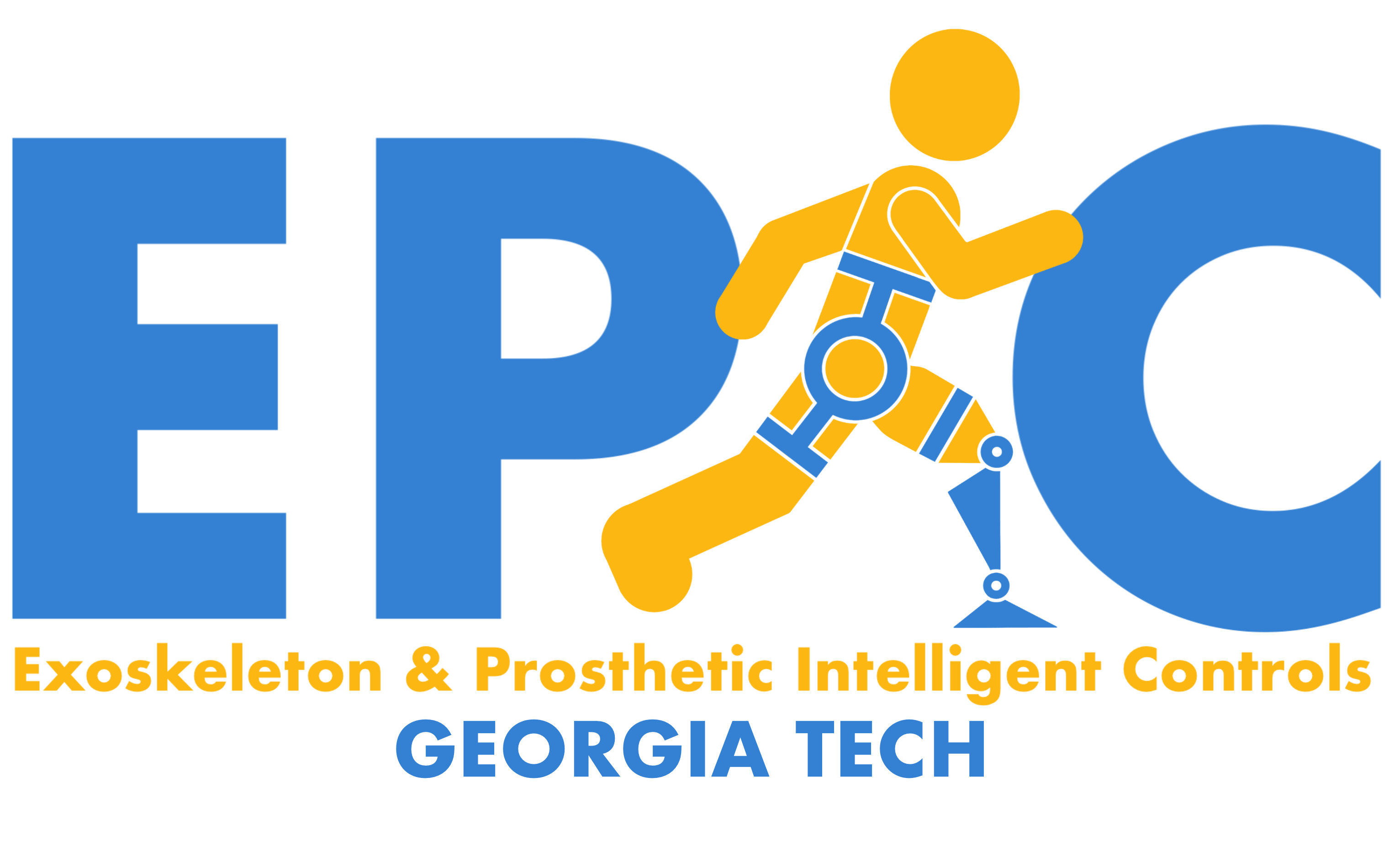Task-Agnostic Human Augmentation
To augment human mobility in daily life, wearable robot controllers must generalize beyond controlled walking environments conventionally studied in the lab – driving the need for task-agnostic exoskeleton controllers. This research project aims to introduce an exoskeleton controller able to modulate assistance to reduce human joint effort during a wide array of activities (e.g., walking, lunging, and jumping) using deep learning. The first goal of this project is to develop an opensource dataset of human lower-limb biomechanics during a variety of natural human movements. Using the resulting dataset, the second goal of this project focuses on the optimization of a deep learning-based exoskeleton controller, able to generalize with changes in human activity. The resulting exoskeleton system is expected to bridge the gap between the successes of in-lab exoskeleton technology and the needs for improved human mobility in the real world.
Lab members:
Ethan B. Schonhaut
Carlos Carrasquillo
Matthew Lerner
Ethan Park
Collaborators:
Skip
Dr. Max Shepherd
Google X
Related work:
Dean D. Molinaro, Keaton L. Scherpereel, Ethan Schonhaut, Georgios Evangelopoulos, Max K. Shepherd, Aaron Young, “Task-Agnostic Exoskeleton Control via Biological Joint Moment Estimation,” Nature, Volume 635, (2024), pp. 337-344. (DOI)

